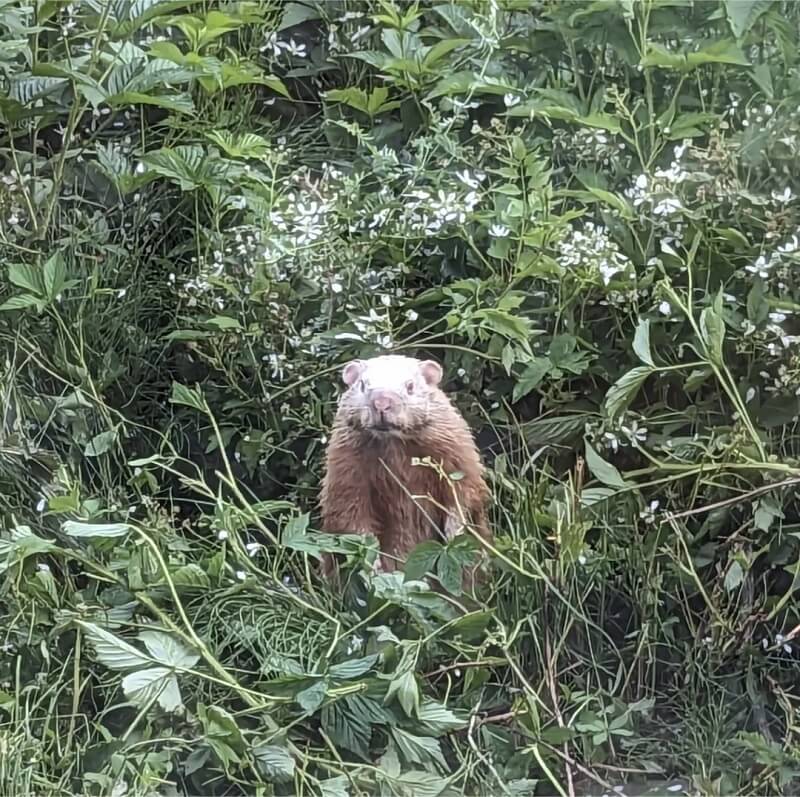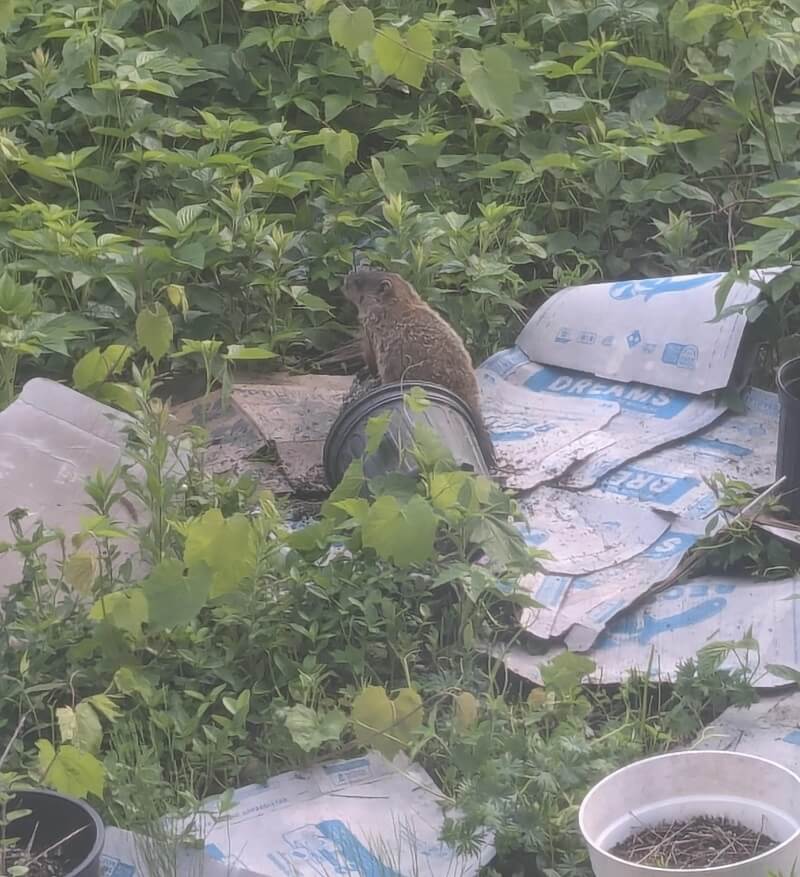Mowing your lawn might give it a traditional, pristine appearance that pleases members of your homeowners association. But it might also prevent wildlife from living its best life and thriving in its natural ecosystem.
One Reddit user is a testament to this, sharing a post about a woodchuck taking up residence in a yard left unmowed. The post shows the woodchuck in a diverse lawn thriving with plants.


"This is what you get when you don't mow," the homeowner wrote in the caption. "An albino woodchuck (named Marshmallow) that then has the friggin' s'mores brothers for babies."
The woodchuck photos are nothing short of adorable and have captured the attention of fellow Redditors interested in ending monoculture lawns in favor of biodiversity.
Allowing wildlife to live naturally on your property is a lovely way to reconnect with nature and learn about native animals. Some local wildlife populations are pollinators that support the healthy growth and development of plants. Other animals provide natural pest control solutions by feeding on insects that might otherwise harm plants.
Switching to a natural lawn has many other benefits in addition to attracting wildlife. Even if you replace only part of your lawn with low-maintenance plants such as clover or buffalo grass, you can save hundreds of dollars annually on your water bills, fertilizers, pesticides, and weed control.
By ditching your gas-powered lawnmower in favor of a natural yard, you can reduce your personal contribution to air pollution. Lawnmowers make up at least 5% of air pollution in the U.S., and that percentage is even higher in cities, as reported by the Princeton Student Climate Initiative, which cited data from the EPA.
You can also reduce your safety risks, save money on fuel, and enjoy more time doing things you love instead of mowing the lawn.
"She's so cute!" one Redditor commented on the woodchuck post.
"I'd prefer this guy to my current neighbors," a Redditor said.
"She's such a ham beast!" another Redditor wrote. "I demand more Marshmello!"
Join our free newsletter for easy tips to save more, waste less, and help yourself while helping the planet.









